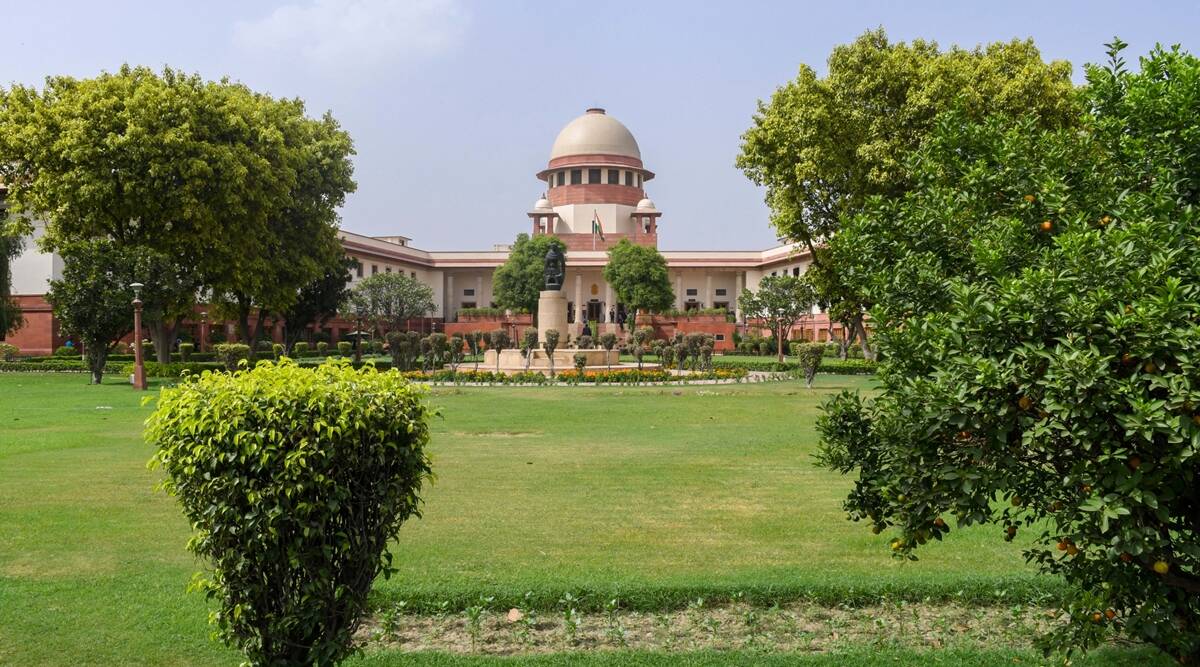 The CJI asked why the government could not call a meeting of all political parties to discuss the issue.
The CJI asked why the government could not call a meeting of all political parties to discuss the issue.THE SUPREME Court Wednesday agreed to set up a three-judge bench to take a relook at its 2013 ruling in the S Subramaniam Balaji vs State of Tamil Nadu case, wherein it had held that the “state distributing largesse in the form of distribution of colour TVs, laptops etc. to eligible and deserving persons is directly related to the Directive Principles of State Policy” and warrants no interference by the court.
“Alright, I will constitute a three-judge bench,” said Chief Justice of India N V Ramana, presiding over a bench hearing petitions seeking a ban on parties promising freebies in the run-up to elections.
The bench, also comprising Justices Hima Kohli and C T Ravikumar, was responding to requests by Senior Advocates Arvind Datar, Vikas Singh and Solicitor General Tushar Mehta.
The CJI said while the initial petitions were on the promise of freebies before elections, there are now petitions about subsequent schemes, promises and grants too. “…unless and until there is a conscious, unanimous decision that we have to stop somewhere, this type of scheme or this type of freebies… is going to destroy the economy. Nothing can happen by way of legislation, by way of model code of conduct, or by way of our orders… If I pass a mandamus that no political party should make such promises from tomorrow onwards, nobody will care. That’s why there must be a debate. The issue is serious, no doubt,” he said.
Subscriber Only Stories
The CJI asked why the government could not call a meeting of all political parties to discuss the issue. “We have some political parties claiming before the highest court that this is our fundamental right. So there is no question of starting a debate by the Government of India,” responded Mehta.
Earlier, the CJI-led bench had expressed an inclination to set up a committee to look into the freebies issue.
Mehta said a committee headed by Chairman, Finance Commission, or RBI Governor, or Comptroller and Auditor General or some constitutional authority, as suggested by the petitioner, could look into the issue.
“…why doesn’t Government of India constitute a committee to study freebies and the economy,” asked the CJI.
“Your Lordships are seized of the matter. The Government of India would provide all assistance,” Mehta responded.
Appearing for the petitioner, Advocate Ashwini Kumar Upadhyay, Senior Advocate Vikas Singh also said the decision in the Balaji case “is definitely not correct” and even the respondents had said it must be reviewed.
Datar submitted that the SC’s conclusion in the Subramaniam Balaji case “is not a correct proposition of law”.
“In the 2006 election, a party promised colour TVs; they succeeded. In the 2011 election, a party promised free laptops, gold chains, mixer-grinders etc and they came to power. So there is clear evidence that free promises can shift the outcome of the polls,” said Datar, who had appeared for Subramaniam Balaji earlier.
In the 2006 Tamil Nadu polls, the DMK had promised free colour TVs to all households which did not own one. The DMK won and a provision of Rs 750 crore was made in the budget for implementing the promise. In the 2011 polls, the AIADMK-led alliance promised free mixer-grinders, electric fans, laptops, 4 gms gold, thali (mangalsutra), Rs 50,000 cash for women getting married, greenhouses, 20 kg rice to all ration card holders including those above the poverty line. The AIADMK won and took steps to implement its promises.
Subramaniam Balaji had challenged these schemes in court.